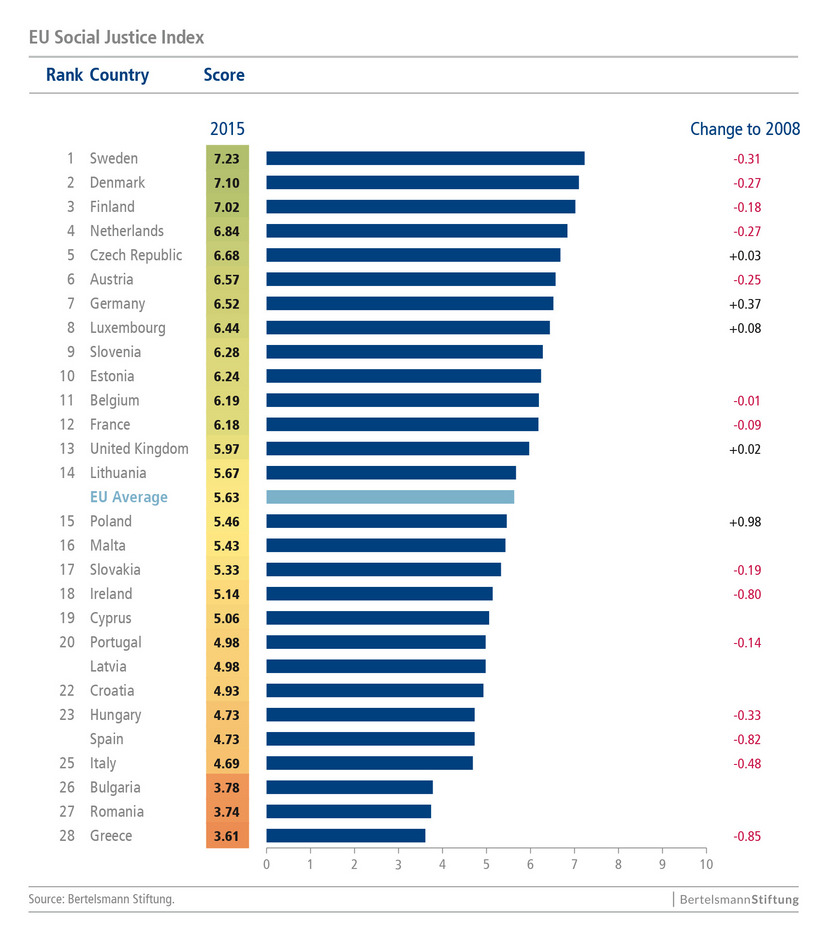Children and young people have been hit the hardest by the European economic and debt crisis. In the EU, some 26 million children and young people – or 27.9 per cent of the population under 18 – are threatened by poverty or social exclusion. The future prospects of the 5.4 million young people who are neither employed nor in education or training are similarly bleak. The social justice gap in Europe runs most strongly between north and south and between young and old. These are the findings of the Social Justice Index, with which the Bertelsmann Stiftung annually assesses the development of social justice in the 28 EU countries. The UK is ranked 13th in this index.
5.4 million young people neither employed nor in education or training
In Spain, Greece, Italy and Portugal alone, the number of children and young people who are threatened by poverty or social exclusion has increased by 1.2 million since 2007, from 6.4 to 7.6 million. They live in households with less than 60 per cent of the median income, suffer from serious material deprivation or grow up in effectively non-earning households.
Moreover, many EU citizens between 20 and 24 years of age find themselves in precarious circumstances. In this age group, 5.4 million (17.8 per cent) are neither employed nor in education or training. The number has risen in 25 EU member states since 2008, in some cases substantially. Only in Germany and Sweden has the outlook for this age group improved in recent years. In contrast, the southern European countries registered the most negative development: in Spain, the share of 20- to 24-year-olds who are neither employed nor in education or training climbed from 16.6 to 24.8 per cent, while in Italy it even soared from 21.6 to 32 per cent.





